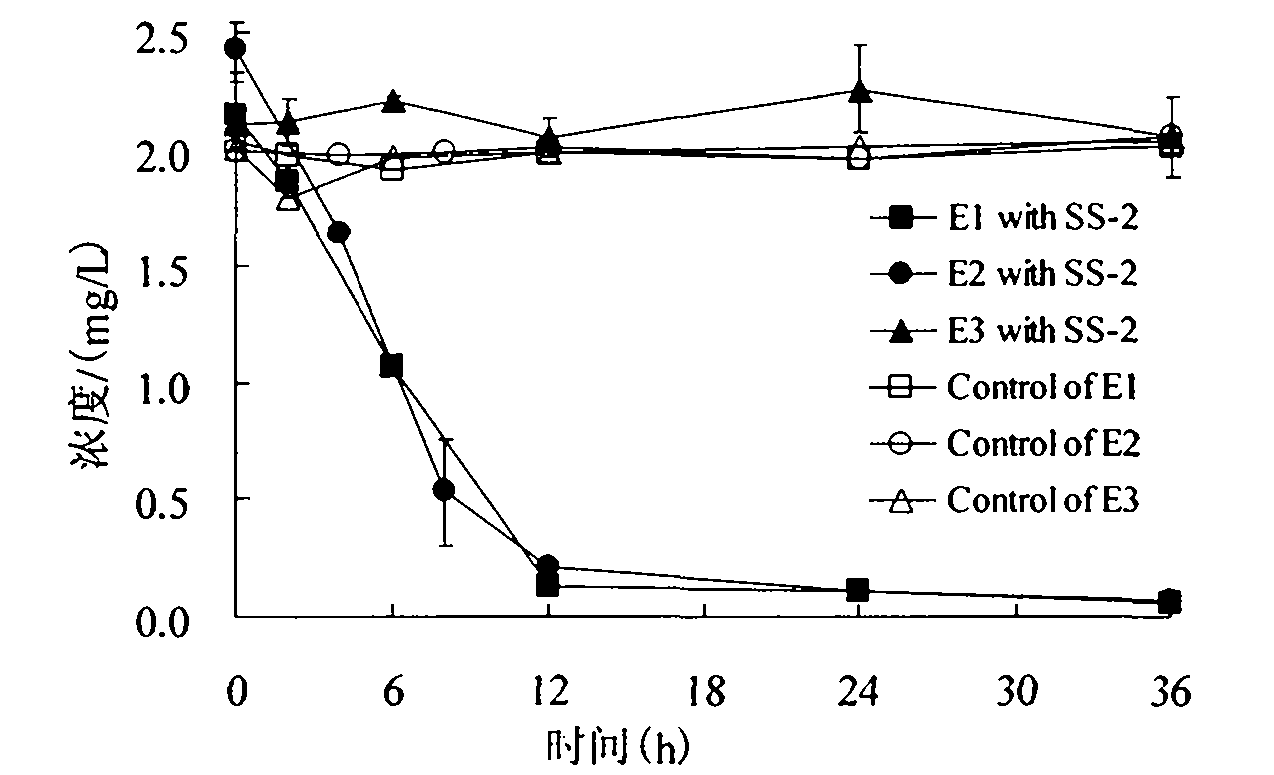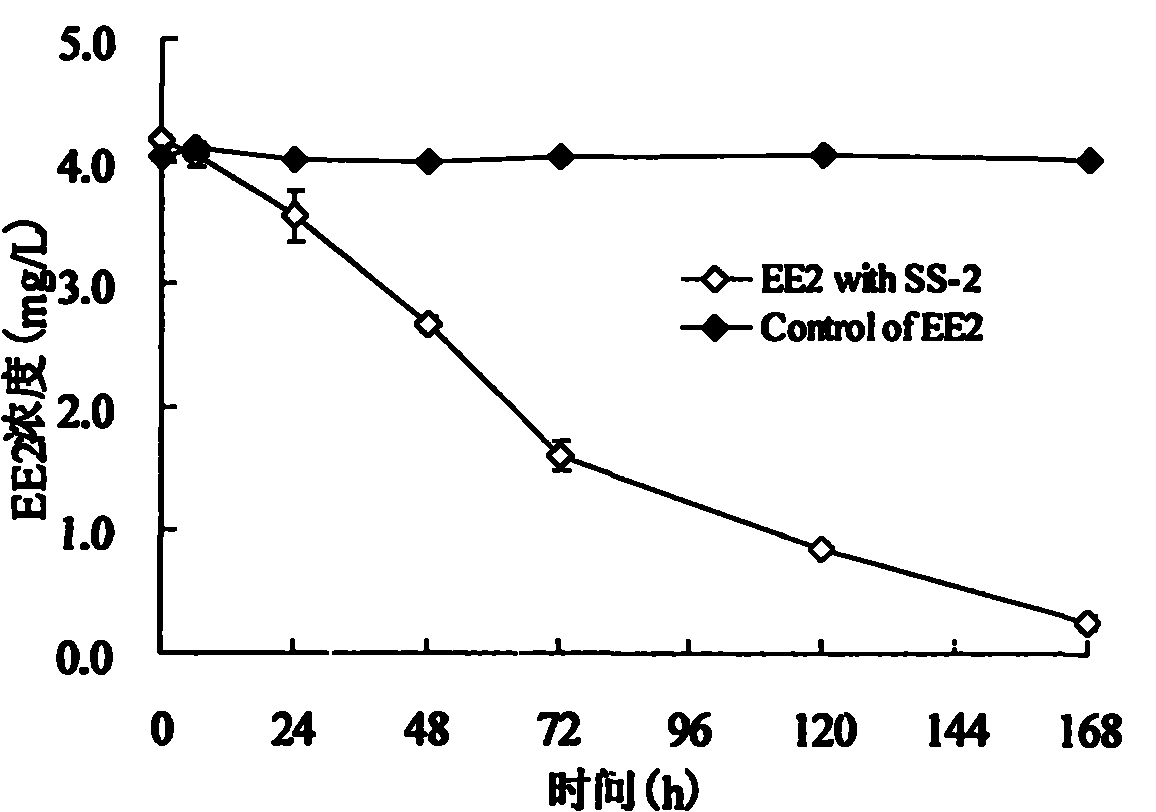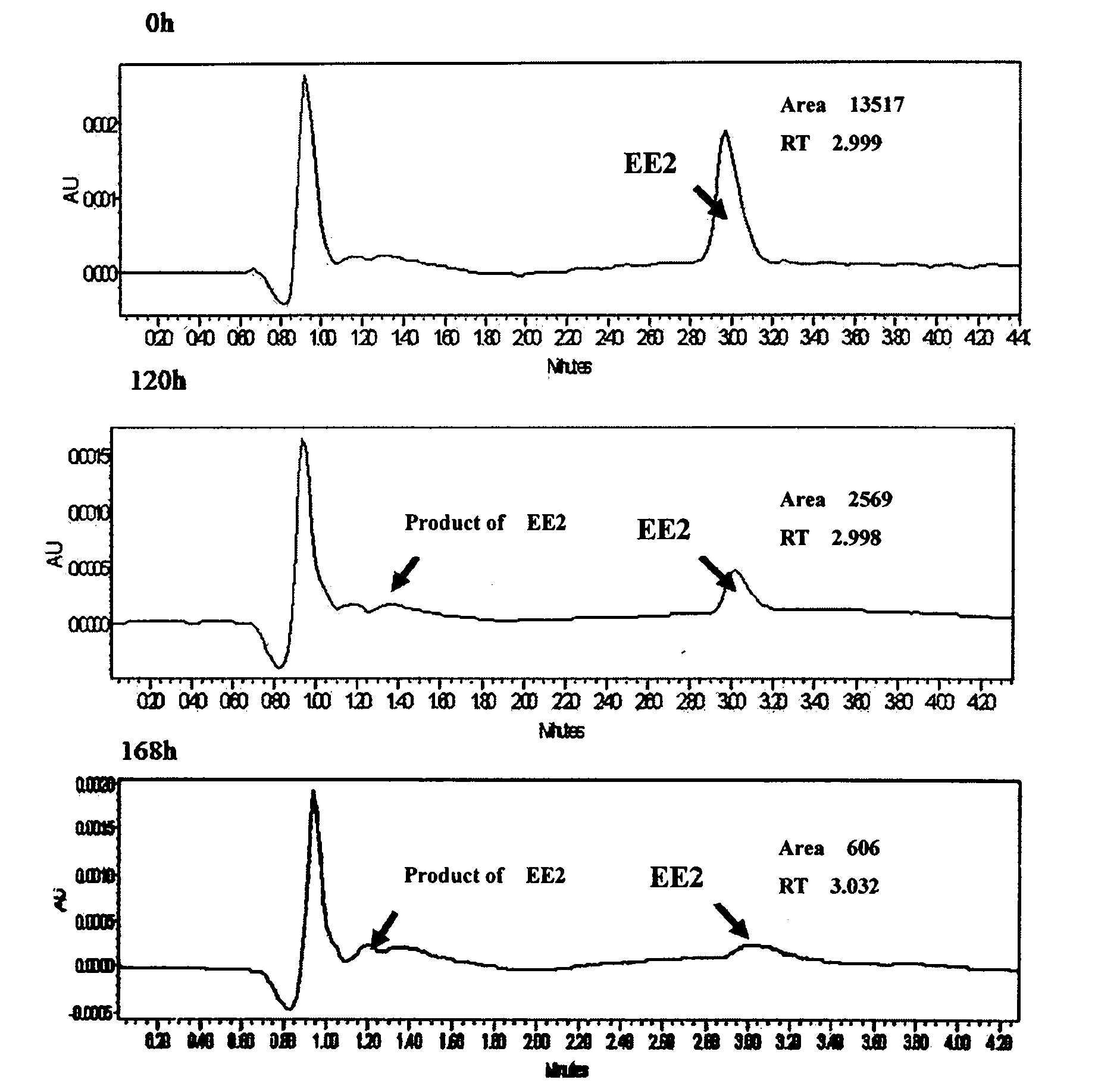Pseudomonas citronelloalis strain capable of degrading estrogen and application thereof
A technology of Pseudomonas and estrogen, which is applied in the field of Pseudomonas citronellolii and its degradation of estrogen, can solve the problems of not being degraded and not being able to effectively remove estrogen, and achieve the effect of increasing the rate
- Summary
- Abstract
- Description
- Claims
- Application Information
AI Technical Summary
Problems solved by technology
Method used
Image
Examples
Embodiment Construction
[0018] 1. Isolation, screening and preservation of the Pseudomonas citronellolis SS-2 bacterial strain provided by the present invention
[0019] The activated sludge in the denitrification and phosphorus removal process system of the sewage treatment plant was collected as a microbial source, and transported back to the laboratory under refrigeration. Prepare an inorganic medium containing 50mg / L estrogen as the sole carbon source, and inoculate it in a 500mL Erlenmeyer flask with 100mL of the above-mentioned inorganic medium according to the inoculum amount of 2.5% activated sludge. The inorganic component contained in the medium is K 2 HPO 4 , 0.1g / L; (NH 4 ) 2 HPO 4 , 0.1g / L; MgSO 4 ·7H 2 O, 0.02g / L; FeCl 3 , 0.01g / L; CaCl 2 2H 2 O, 0.1g / L; NaCl, 0.1g / L. Use 2‰ acetic acid to adjust the pH value of the medium to 7.0-7.2, and sterilize it in an autoclave at 121°C for 20 minutes. After the temperature drops to about 30°C, inoculate it under the ultra-clean bench. ...
PUM
 Login to View More
Login to View More Abstract
Description
Claims
Application Information
 Login to View More
Login to View More - R&D
- Intellectual Property
- Life Sciences
- Materials
- Tech Scout
- Unparalleled Data Quality
- Higher Quality Content
- 60% Fewer Hallucinations
Browse by: Latest US Patents, China's latest patents, Technical Efficacy Thesaurus, Application Domain, Technology Topic, Popular Technical Reports.
© 2025 PatSnap. All rights reserved.Legal|Privacy policy|Modern Slavery Act Transparency Statement|Sitemap|About US| Contact US: help@patsnap.com



